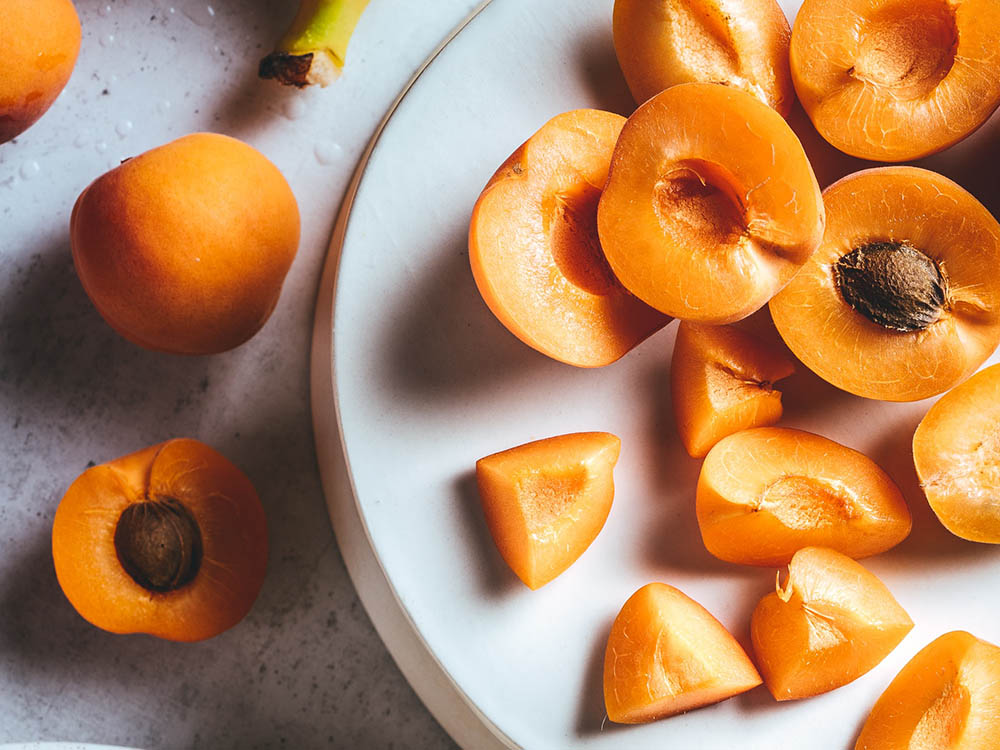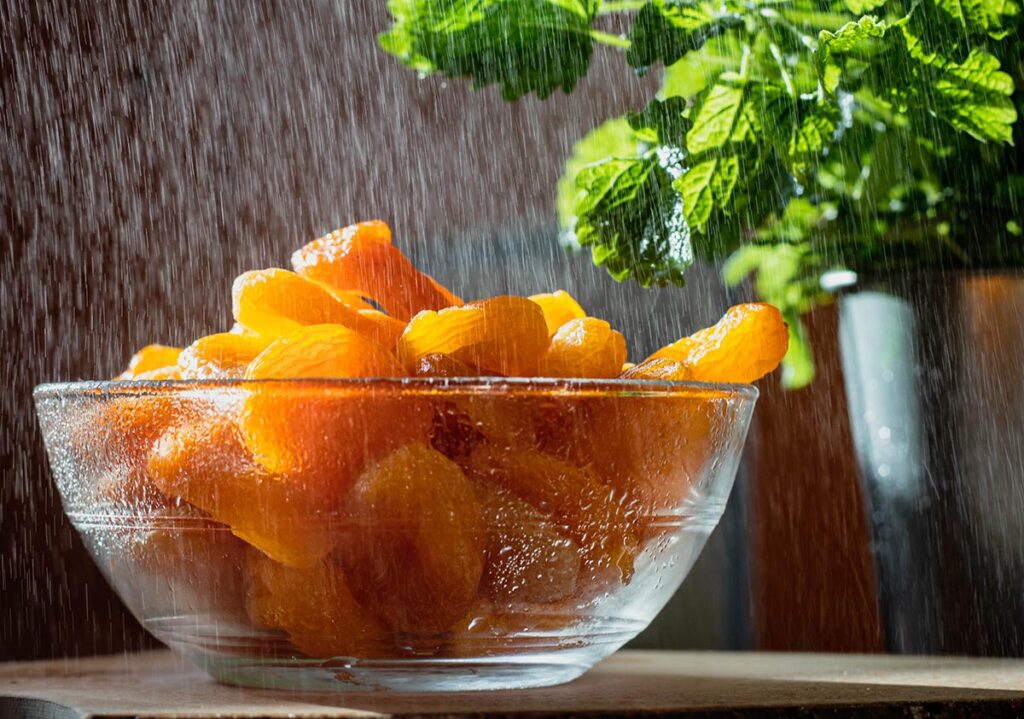
Although the origin of the apricot is disputed, one thing is sure – this fruit dates back to 3000 years ago. Some say that the apricots were first grown in ancient China, others say that Armenia is the first home of this sweet orange-yellow fruit.
Apricots are loaded with beta-carotene. It’s that orange color that apricots, carrots, pumpkins or sweet potatoes have, although it can be found also in yellow and green fruits and vegetables. Beta-Carotene is a provitamin and once stored in our liver it transforms into vitamin A when needed. It is a strong antioxidant that has a key role in keeping our eyes, skin and neurologic functions healthy. If you consume enough food filled with beta-carotene then you don’t need to take supplements (taking too much of its supplements you can get overdosed with vitamin A).
One raw apricot of regular size (35g) has only 16.8 calories most of them coming from carbohydrates (among are natural sugars such as sucrose – high amount, glucose, fructose). It contains 13% of the daily value of Vitamin A, and 6% DV of Vitamin C. It contains also a bunch of other vitamins such as vitamin E (alpha tocopherol), vitamin K, Thiamin, Niacin… as well as minerals Calcium, Potassium, Magnesium, Phosphorus, Iron…
Did you know that apricots are members of the rose family and are close relatives of almonds.
Dried fruits are an easy and practical source of vitamins especially if you are in a rush or busy at work. It can last longer than fresh fruit, and with drying concentration of the nutrients rise. For example, in dried apricots you can find 12 times more beta-carotene than in the fresh fruit. They have more potassium than bananas and enough fibers that are good for digestion.
Dried apricots are like a chest filled with nutrients – rich in vitamins, folic acid, potassium, iron, calcium, magnesium, zinc and carbohydrates. They are sweet snacks that can be a tasty addition to your breakfast cereals.

A 100 g of dried apricots has 241 calories coming mostly from carbohydrates (62.2g, of which sugars 53.4g). Still, they are a good source of potassium (1160mg), calcium (55mg), phosphorus (71mg), iron, magnesium, beta-carotene (2160 µg), vitamin K (3.1µg), vitamin E (4.33µg) (Source)
Did you know? 3000-year-old apricot cores were discovered during excavations at Garni temple, 25 km far from Yerevan, the capital of Armenia. The apricot was imported into Europe by Lucullus, a Roman general after the 1st century B.C. Because of its origin, the fruit was known as “prunus Armeniaca” which means “Armenian plum”. At the beginning of the 7th century apricots in China have been preserved by various methods including salting and smoking and the more common drying. Hupei is known for its black smoked apricots.
Apricots are so great that except its sweet orange flesh you can even eat its seed hidden in the hard shell. The seed can be sweet or bitter. These bitter ones contain high levels of amygdalin, a toxic component that can be lethal if consuming them in greater amounts. Amygdalin is labeled as B17 vitamin. Due to the possible effects of amygdalin, the recommended amount of 8 seeds daily should not be exceeded and it shouldn’t be given to children at all. A quarter cup of apricot seed contains 160 calories, 7 g of carbs (2g of sugar and 5g of dietary fiber).
So far it seems apricots should be included in our diet when possible. Having in mind all the benefits and sweet taste of dried apricots, we’ve mixed it with the rest of the raw ingredients of Lemon Crush B!TE ME raw bar. Although this raw bar’s main flavor is lemon that dominates the bar, dried raw apricots bring a bunch of healthy nutrients.
